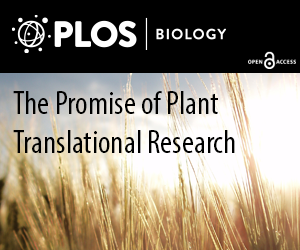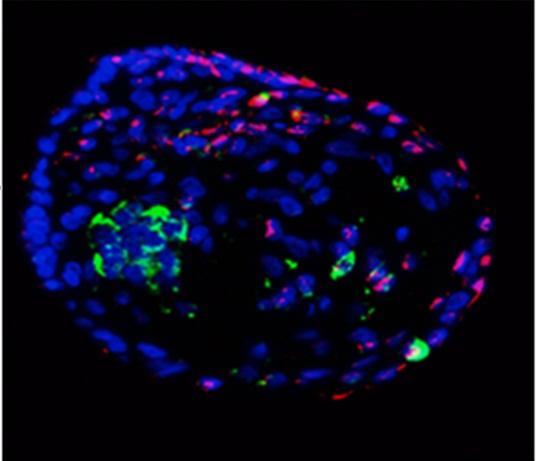This week in PLOS Biology
This week sees the launch of a new PLOS Biology Collection; The Promise of Plant Translational Research, and a research article into a possible new drug target for rheumatoid arthritis.
Rheumatoid arthritis (RA) is an autoimmune disease characterized by chronic inflammation in the synovia of the joints. Its causes are still somewhat unclear, and there’s an urgent need for new and effective treatments. New research by Je-Hwang Ryu, Jang-Soo Chun and colleagues in PLOS Biology this week explored the role of HIF-2α, a transcription factor involved in the response to hypoxic conditions; hypoxia in the inflamed synovium is a known feature of RA. This new research showed that in mice, HIF-2α is markedly increased in the tissue lining the RA-affected joints. Interestingly, when it was overexpressed in normal mouse joint tissue, HIF-2α caused RA-like symptoms by itself. The authors conclude that HIF-2α could therefore be a therapeutic target for treatment of this disease.
 With the world’s population projected to rise from the current 7 billion to 9 billion by 2040, feeding these people from the same limited land and water resources will need considerable technology-driven advances in agricultural productivity. This week PLOS launches a new Collection, marked by 7 inaugural articles* in PLOS Biology, with the aim of encouraging submission of relevant research to Open Access venues like the PLOS journals, where they can be read by those who most need to. Read the Biologue blog post “How Will We Feed the World?” by Roli Roberts and our Editorial for more details.
With the world’s population projected to rise from the current 7 billion to 9 billion by 2040, feeding these people from the same limited land and water resources will need considerable technology-driven advances in agricultural productivity. This week PLOS launches a new Collection, marked by 7 inaugural articles* in PLOS Biology, with the aim of encouraging submission of relevant research to Open Access venues like the PLOS journals, where they can be read by those who most need to. Read the Biologue blog post “How Will We Feed the World?” by Roli Roberts and our Editorial for more details.
*New articles in PLOS Biology published as part of “The Promise of Plant Translational Research”:
New Horizons for Plant Translational Research: Jeffrey Dangl, Sophien Kamoun, Susan McCouch and Jane Alfred present an overview of the Collection.
Moving beyond the GM debate: In this Perspective, Ottoline Leyser calls for the public to move on from the common logical fallacy that anything natural is good, and anything unnatural is bad, and addresses the misconception that GM, as a technique, is specifically and generically different from other crop genetic improvement techniques.
Genome Elimination: Translating Basic Research into a Future Tool for Plant Breeding: This Perspective by Luca Comai discusses the contribution of the late Simon Chan to the invention of genome elimination, and ponders the future of his approach as a way of streamlining the optimisation of plant genotype.
Finally, four Essays explore the technological basis and real-life application of genetic and genomic research, genome editing, whole-genome sequencing and metabolic engineering to the improvement of food crops:
Lab to Farm: Applying Research on Plant Genetics and Genomics to Crop Improvement by Pamela Ronald.
Precision Genome Engineering and Agriculture: Opportunities and Regulatory Challenges by Daniel Voytas and Caixia Gao.
Harvesting the Promising Fruits of Genomics: Applying Genome Sequencing Technologies to Crop Breeding: by Rajeev Varshney, Ryohei Terauchi and Susan McCouch.
Key Applications of Plant Metabolic Engineering by Warren Lau, Michael Fischbach, Anne Osbourn and Elizabeth Sattely.

